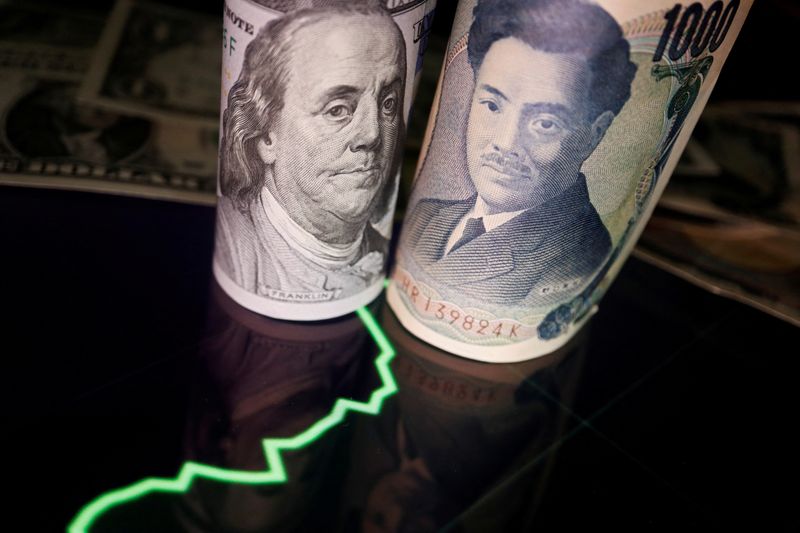By Brigid Riley
TOKYO (Reuters) - The dollar pulled further back from a 10-month high against a basket of currencies on Friday on the last trading day of the quarter, giving the yen some breathing room amid intervention concerns.
The euro continued its rebound, rising further from a January low of $1.0482, which if broken would be its lowest level since December, as investors eye euro zone inflation data.
The dollar index, which tracks the currency against six other majors, retreated about 0.1% in Asian hours to 106.02 compared with the U.S. close, and further off Wednesday's 10-month high of 106.84. The currency though remained on track for a second straight month of gains.
U.S. Treasury yields, which had been lending support to the dollar, fell from multi-year highs overnight.
Markets are looking ahead to the next data points, starting with key U.S. personal consumption data due for release later on Friday. However, a partial government shutdown is looming, which could affect the release of economic data.
A lack of data could create a "vacuum of uncertainty" as the Federal Reserve tries to determine whether another rate increase is needed this year, said Tony Sycamore, market analyst at IG.
"When we've got central banks that are data dependent... and they can't get that data in a timely fashion, it does, I think, create another reason to move to the sidelines in some of these asset classes," Sycamore said.
Richmond Fed President Thomas Barkin joined a slew of Fed officials speaking this week, saying on Thursday it was unclear whether more monetary policy changes will be needed in coming months.
Despite some relief, pressure remains on the yen as it trades near 150 per dollar, seen as a potential intervention trigger for authorities. The yen last traded at 149.36.
Core inflation in Japan's capital slowed in September for the third straight month mainly on falling fuel costs, data showed on Friday.
Separate data showed factory output was flat in August compared with July, a sign companies were feeling the pain from soft global demand and weak growth in China's economy.
Although currency intervention may have limited impact, "the government would lose nothing politically by demonstrating to the Japanese public that it is serious about tackling the surge in import prices that results from a weaker yen," Yasunari Ueno, chief market economist at Mizuho Securities, said in a note.
Elsewhere, the euro stood at $1.0579, continuing its climb from a multi-month low of $1.0488 this week, ahead of euro zone inflation data due later in the day.

Sterling ticked up nearly 0.1% to $1.2223, recovering most of its losses this week after it fell to $1.2111 on Wednesday, its lowest level since March 17.
The Aussie extended its rise on Friday, rising more than 0.4% versus the U.S. dollar to $0.6456, while the kiwi reached as high as $0.6006, a four-week peak against the U.S. currency.